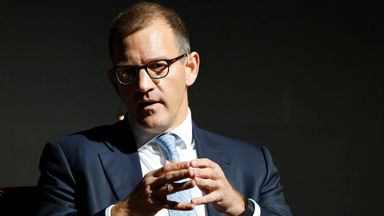As an anti-Green Deal wind blows over the European elections of 9 June, the EU must remain a key driver in the fight against climate change.
The next mandate will be essential to ensure that the ambition of the Green Deal bears fruit, enabling the decarbonisation of the European economy while strengthening the EU’s international competitiveness.
This also means paying particular attention to citizens’ acceptance by ensuring that each and every one of us benefits from the energy transition.
Climate change and geopolitical shifts demand a strong answer from Europe.
The energy crisis in 2021-2022 reminded us that energy supply dependencies carry significant risks. Resilience and energy sovereignty must remain a priority as a resilient energy sector makes Europe stronger and more independent in its decision-making.
This means reducing our dependence on fossil fuels, strengthening our renewable and low-carbon production capacities, further decarbonising and electrifying our economy and preparing our grid infrastructure for this major shift.
Interconnectivity is key to European energy sovereignty
The European internal energy market has proven to be the pillar of a reliable and increasingly decarbonised energy supply across the EU.
With a growing share of renewable and low-carbon electricity in the system, coupled with the need to reduce the share of fossil fuels in final consumption, its role will only continue to grow, ensuring that electricity is always produced where it is the cheapest and most decarbonised and allowing us to maintain our European energy sovereignty, also thanks to new investments.
This asset must be preserved and strengthened by further deepening cooperation at the EU level.

Even if we have different national energy mixes reflecting different choices on how to decarbonise our economies, these differences are a strength rather than a weakness because they complement each other. To meet their specific needs, Germany and France exchange electricity.
In 2022, France imported 5.5 TWh of electricity from Germany, while Germany imported 9.3TWh of electricity from France in 2023.
Such interconnections increase the security of supply by compensating for eventual fluctuations in electricity generation or transmission and enable electricity suppliers to sell energy to a customer in another EU country.
However, European energy cooperation can only work efficiently if we have a high degree of interconnectivity.
Given the strong industrial clusters on both sides of the Rhine that need to be decarbonised, we propose a stronger Franco-German cooperation on interconnectivity in line with the potential for exchanges between the two countries.
Strong energy sector, more competitive Europe
A strong European energy sector also means a more competitive Europe.
Industrial competitiveness is closely linked to Europe’s energy transition. The EU has the potential to be a technological leader in the energy transition, thus further increasing its energy sovereignty.
However, today, we see worrying dependencies in key industries for the energy transition, such as the solar industry.
Therefore, we need a stronger and more coordinated EU industrial policy to reduce Europe’s dependence on imports of net-zero technologies and energies, strengthen value chain resilience, and build a stronger domestic market.
To do so, we need to incentivise European customers to switch from fossil to decarbonised technologies with well-balanced measures to support market access for strategic technologies “made in the EU”.
This can also help internalise strategic sovereignty and resilience in the energy transition.
Let's implement what has been decided in the current mandate, give more visibility to economic actors, strengthen Europe's competitiveness and ensure a fair transition for all citizens.
The German and French energy industries are convinced that we will only prosper by capitalising on the complementarities and synergies between our countries.
Only by working closely with our European partners will we be able to meet the challenges that lie ahead.
Christine Goubet-Milhaud is President of the Union Française de l’Electricité (UFE), and Kerstin Andreae is Managing Director of the German Association of Energy and Water Industries (BDEW).
At Euronews, we believe all views matter. Contact us at view@euronews.com to send pitches or submissions and be part of the conversation.
Disclaimer: The copyright of this article belongs to the original author. Reposting this article is solely for the purpose of information dissemination and does not constitute any investment advice. If there is any infringement, please contact us immediately. We will make corrections or deletions as necessary. Thank you.



